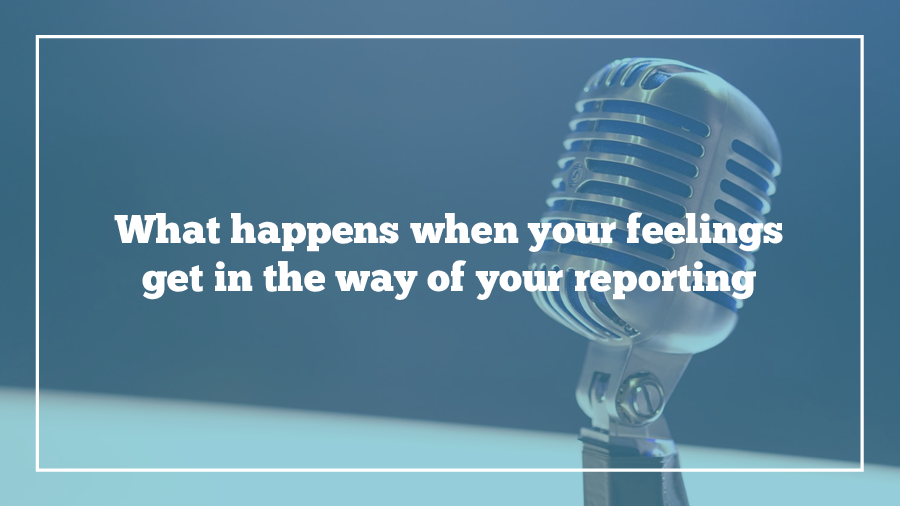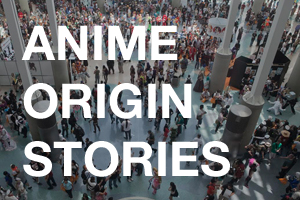
I want to start by saying there’s no reason for me to get nervous about being on the radio.
I started making semi-regular radio appearances when I worked at tech blog ReadWrite. If they thought an article I’d written recently was timely, I’d show up on WBEZ 91.5 Chicago and talk about stuff like the Apollo 11 spaceflight. After I moved on to Forbes, I got to talk about topics closer to my heart, like Isao Takahata’s legacy as a Studio Ghibli cofounder for BBC radio, or this extended interview on cosplay for CBC radio’s q show.
I’ve also been on TV—a local Fox News channel interviewed about my book and then again about cosplay in general. I still haven’t watched either video, so there’s probably something emotional to unpack there but that’s not the point of this blog post.
The point is that last Thursday morning, I found myself processing my feelings about the horrific Kyoto Animation fire in front of a live international audience in my worst radio interview ever.
Here’s the episode, though I’m not sure how you listen outside of Canada. Host Tom Power covered the basic facts and then asked me for details about why the studio had made such a big impact on the anime industry. As usual, I’d been prepared in advance with the questions and even did a rehearsal. But about halfway through, I think it was after Tom asked me something like, “What’s the fan reaction to the news of the fire?” I froze. Mentally, after years of public speaking, I knew logically that I only stopped talking for about two seconds. But two seconds feels like forever on the air, for both you and your listeners. I had been simply repeating my prepared notes when suddenly the impact of the question hit me. I’m one of those fans, too.
I found out about the fire around 3 AM. I’m pregnant and uncomfortable enough that I wake up at 3 AM pretty consistently most nights, check Twitter, and go back to bed. Our world is such a hellscape nothing I saw on Twitter interrupted my sleep, until Thursday night. As more details unfolded, I couldn’t look away. I ended up giving up on sleep at around 4:30 and started work for the day. Around 8, I heard from my contact at CBC, who asked if I could provide some background on Kyoto Animation’s legacy and appeal. I didn’t think twice about accepting, because I’ve been on the radio so much in the past.
What I didn’t think about was how, in my sleep-deprived state, I had mostly been considering the situation as a journalist—just gathering the facts. I was upset, to be sure, but more in a numb way. It wasn’t until halfway through that interview that the full reality of the situation hit me. After I got off the radio, I finally cried for the lives lost, for the senselessness of this attack. Talented creatives whose only crime was bringing entertainment to millions—gone.
Since 2011, I’ve spelled out my personal credo in what I call the Otaku Journalist Manifesto. The news landscape at large has changed immensely since then, but I still love this part where I champion authentic, not objective, reporting: “I’m not saying to take sides. But don’t be a cold observer. Bring yourself, your experiences and intuition, to the article.” It’s a great sentiment, but not one I’d ever examined this deeply. How do you report on a story so close to your heart that you’re barely holding it together during the process?
I have immense respect for the reporters like Crystalyn Hodgkins who kept covering the tragedy all day. I couldn’t do it. I took time off until evening, when I wrote a piece for Forbes including all the things I wanted to say on the radio but couldn’t. This is not one of my blog posts that wraps up with a neat solution: nothing can undo the KyoAni attack, and it’s not something I or anyone will stop grieving overnight. But I wanted to share what it felt like when something I care about personally came crashing into the work I do. Please take time for yourself to grieve. Send a message of support to KyoAni through Crunchyroll (I’m told they’ll be translating as many of these notes as possible). And be kind to your fellow fans—including the professionals still working despite this—who are just as frustrated and wrecked by this news as you are.
Photo credit: Matt Botsford on Unsplash.
Discover more from Otaku Journalist
Subscribe to get the latest posts sent to your email.



